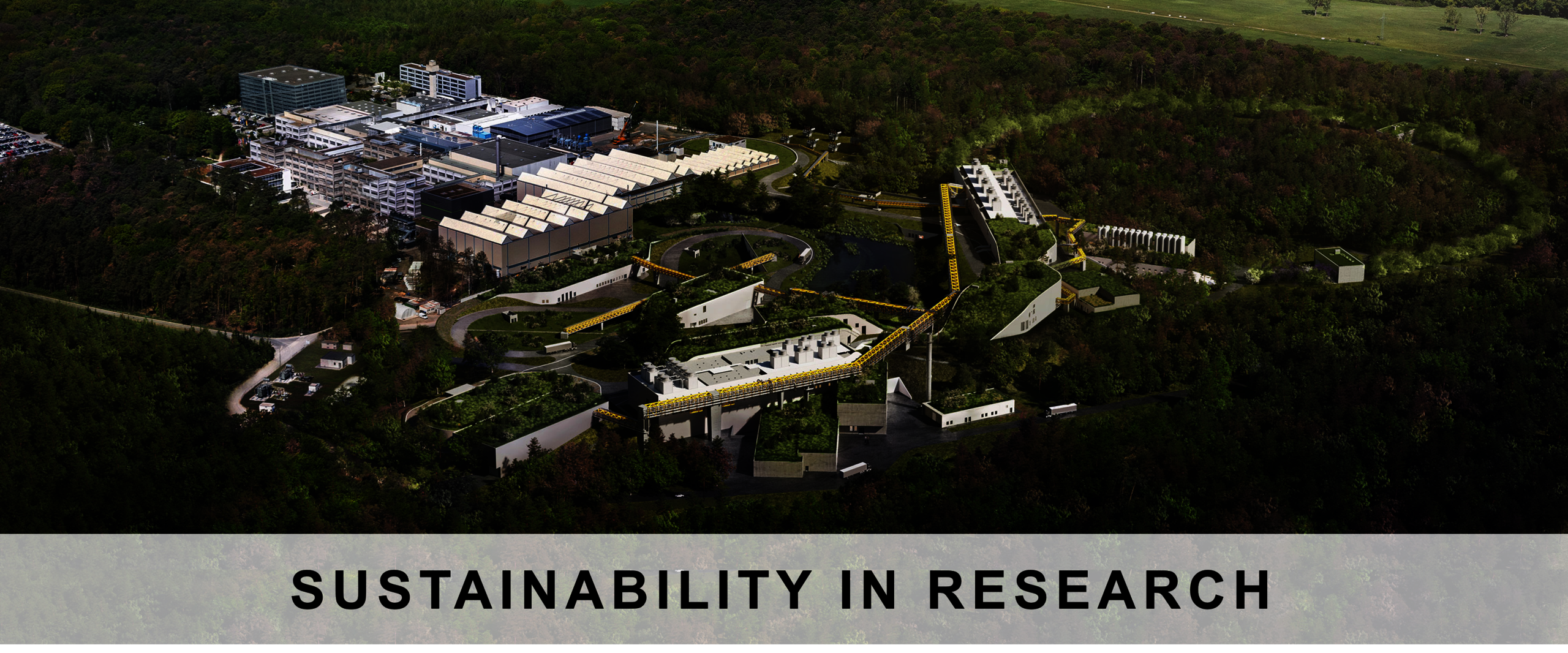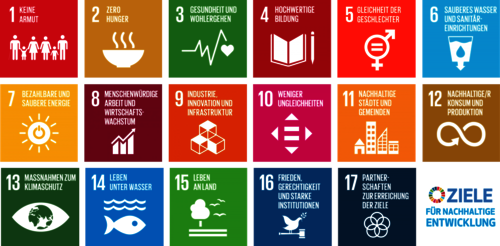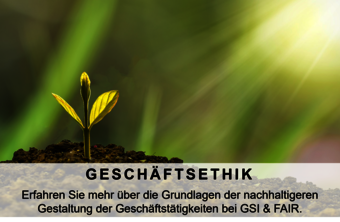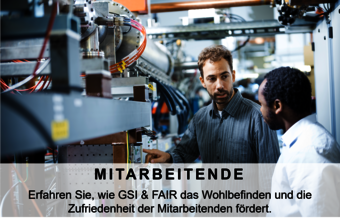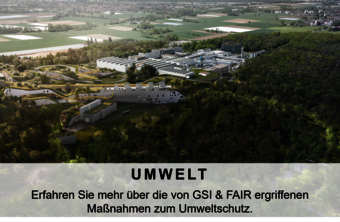GSI Helmholtz Centre for Heavy Ion Research GmbH (GSI) and FAIR (Facility for Antiproton and Ion Research in Europe) contribute to sustainable development through their scientific results. As a publicly funded research institute, GSI and FAIR also face the challenge of fulfilling their responsibility towards the environment, society and their employees in a changing world.
GSI and FAIR are aware of their responsibility and are committed to economic, ecological and social sustainability. In order to fulfil the construction and operation of accelerator facilities and research with heavy ions in a sustainable and responsible manner, a sustainability management system has been established and the position of Sustainability Officer has been created. There are already a large number of established and practised sustainability topics to promote the sustainable development of GSI and FAIR.
GSI und FAIR bauen stetig ihre Aktivitäten im Bereich der nachhaltigen Entwicklung in den kommenden Jahren weiter aus. Die Forschungsinstitute sind davon überzeugt, dass die kontinuierliche Auseinandersetzung mit dem Thema Nachhaltigkeit einen wichtigen Beitrag zur Bewältigung der gesellschaftlichen und ökologischen Herausforderungen und zur Zukunftsfähigkeit der Institute darstellt.
Dem Verständnis der Nachhaltigkeit und von verantwortungsvollem Handeln bei GSI und FAIR liegt im Wesentlichen der Leitfaden Nachhaltigkeitsmanagement (LeNa) zugrunde. Der Leitfaden berücksichtigt die Besonderheiten von Forschungseinrichtungen und bietet eine branchenbezogenen Operationalisierung des Konzepts der nachhaltigen Entwicklung.
Die Zielsetzung von GSI und FAIR orientiert sich neben LeNa auch an branchenübergreifenden Standards, wie den United Nations Sustainable Development Goals (UN SDGs).
The understanding of sustainability and responsible behaviour at GSI and FAIR is essentially based on the Sustainability Management Guidelines (LeNa). Compared to other sustainability standards, such as the Global Reporting Initiative (GRI), this guideline takes into account the special features of research institutions and offers GSI and FAIR orientation for the sustainable development of the institute.
According to LeNa, the establishment of sustainability management and activities in five different fields of action – Organisational Management, Personal, Research, Buildings & Infrastructure and Supporting Processes – are crucial for successful, research-specific and sustainable development.
Im Jahr 2015 wurden von den UN-Mitgliedstaaten im Rahmen der Agenda 2030 die United Nations Sustainable Development Goals (UN SDGs) beschlossen.
Diese 17 Nachhaltigkeitsziele sollen zu einer weltweit nachhaltigen Entwicklung beitragen. Sie umfassen die Entwicklung in wirtschaflichen, sozialen und ökologischen Dimensionen und reichen von der Verbesserung des Zugangs zu hochwertiger Bildung und Gesundheitsversorgung über die Gleichstellung der Geschlechter bis zum Schutz des Planeten.
GSI und FAIR unterstützen das Erreichen dieser Ziele für eine nachhaltige Entwicklung insbesondere durch ihre Grundlagenforschung mit Schwerionen und den daraus gewonnen Erkenntnissen, die unter anderem zur Entwicklung einer neuartigen Krebstherapie beigetragen haben. Darüber hinaus tragen der Austausch mit Wissenschaft, Gesellschaft und Wirtschaft, die Reduktion des CO2-Fußabdrucks, sowie ein verantwortungsvolles Handeln zur Verwirklichung der UN SDGs bei.
Supported Initiatives

Wildflower meadow:
For more biodiversity on the GSI and FAIR Campus
Cooperation/Partner

The GSI Helmholtz Centre is actively involved in the Helmholtz Sustainability Forum working group. The exchange on the topic of sustainability between the individual centres of the Helmholtz Association promotes the sustainable development of GSI.
Contact

Sustainability Manager GSI and FAIR
Jan Lindenberg
Phone: +49 6159 71 1381
E-Mail: nachhaltigkeit(at)gsi.de




